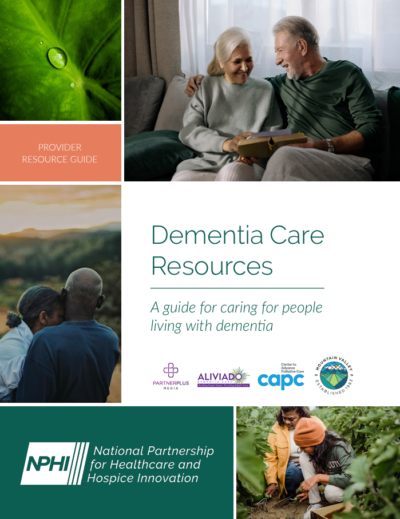Reliable Dementia Care Approaches for a Better Lifestyle
In the world of dementia care, the implementation of reliable approaches is important for improving the lifestyle for both individuals impacted by the disease and their caretakers. Comprehending the unique stages of dementia permits tailored interventions that attend to the advancing demands of individuals-- from advertising cognitive involvement in the early phases to ensuring dignity in late-stage treatment. Moreover, the significance of communication techniques and an encouraging setting can not be overemphasized. What details strategies can be adopted to foster an environment of compassion and connection throughout this challenging trip?
Comprehending Mental Deterioration Phases

In the early phase, individuals may experience mild memory loss and difficulty with acquainted tasks. Care strategies should focus on maintaining self-reliance and offering cognitive excitement. In the late stage, people may lose the ability to connect and need assistance with day-to-day activities.
Acknowledging these stages allows caregivers to adapt their techniques and provide support that aligns with the person's existing needs, inevitably assisting in much better monitoring of the condition and improving the general caregiving experience. Understanding dementia stages is therefore a fundamental aspect of efficient dementia treatment.
Interaction Strategies
Reliable interaction is an essential part of mental deterioration treatment, especially as the illness proceeds through its numerous stages. As cognitive abilities decrease, it comes to be necessary to adapt interaction strategies to meet the requirements of individuals with mental deterioration. Utilizing clear, simple language is important; caretakers ought to prevent intricate sentences and jargon, opting rather for uncomplicated, succinct expressions.
Non-verbal communication plays a similarly substantial function. Faces, gestures, and intonation can communicate warmth and understanding, often improving spoken messages. Maintaining eye call and an open posture promotes a feeling of connection and safety and security, encouraging people with mental deterioration to engage even more totally in discussions.
It is also valuable to be patient and enable sufficient time for reactions. Individuals may call for extra time to process details and develop their ideas. If understanding shows up lacking., repeating or rewording inquiries may be necessary.
Last but not least, focusing on the person's rate of interests and individual background can promote much more meaningful communications. Taking part in familiar topics can stimulate favorable memories and feelings, further enriching the communication experience (dementia care charlotte). By using these methods, caregivers can significantly boost the quality of communications, promoting self-respect and regard for people dealing with mental deterioration
Creating a Safe Environment
Creating a safe setting for individuals with mental deterioration is important to advertising their health and freedom. A properly designed area can dramatically minimize the risks of crashes and enhance the lifestyle for those affected by this condition. Secret considerations include decreasing mess and guaranteeing clear pathways to facilitate wheelchair. Eliminating or safeguarding potential risks, such as loosened carpets, sharp objects, or poisonous substances, is essential in avoiding drops and injuries.
Lighting plays an important role also; making use of all-natural light anywhere possible and integrating evening lights can aid people navigate their surroundings securely. Furthermore, identifying areas and crucial objects can assist memory and alignment, reducing complication and anxiousness.
It is additionally important to create an acquainted atmosphere by personalizing the space with photos or valued products, which can stimulate positive memories and a feeling of belonging.
Including furnishings that is both comfy and functional adds to an encouraging atmosphere, allowing individuals to involve in everyday tasks easily. Eventually, a safe atmosphere not only safeguards versus physical risks however also promotes a feeling of protection, which is crucial for the psychological well-being of those dealing with mental deterioration.
Engaging Tasks and Regimens
Engaging activities and structured routines are vital elements in the care of individuals with mental deterioration, as they advertise cognitive function, emotional security, and social interaction. These tasks must be customized to the person's rate of interests, look at this site capacities, and stage of cognitive decrease. memory care charlotte. Easy, repeated jobs such as gardening, crafts and arts, or cooking can supply purposeful engagement, enabling individuals to use their skills while fostering a feeling of achievement
Developing a day-to-day regimen aids create a predictable environment, which can lower anxiety and complication. click here to read This framework can consist of assigned times for dishes, activities, and rest, making certain a well balanced approach to every day life. Integrating social interactions right into these routines, such as group tasks or seeing household, further enhances emotional health and fights feelings of isolation.
Furthermore, physical activities, such as dancing or strolling, not only promote physical wellness but likewise boost psychological interaction. Encouraging engagement in neighborhood events or support groups can offer added opportunities for socialization. Overall, the integration of appealing activities and structured regimens is crucial in enhancing the quality of life for people with mental deterioration, promoting freedom and dignity while addressing their one-of-a-kind needs.
Sustaining Caretaker Wellness
Looking after people with dementia can be a requiring and mentally exhausting experience, making it essential to prioritize the health of caregivers. Caretakers often deal with high levels of stress, anxiousness, and physical exhaustion, which can result in exhaustion if not dealt with properly. To support their wellness, it is necessary to apply a diverse strategy.
First, supplying caretakers with access to education and learning and resources can empower them with approaches to manage daily challenges. Support system, both in-person and online, offer a system for sharing experiences, promoting a sense of area, and minimizing sensations of seclusion. Additionally, reprieve care solutions make it possible for caregivers to take necessary breaks, enabling them time to read participate in and charge to their own health and wellness needs.
Moreover, urging caregivers to participate in self-care practices-- such as regular workout, healthy eating, and mindfulness-- can significantly improve their strength. Promoting open interaction about their feelings and obstacles with relative or specialists additionally assists minimize psychological problems.
Verdict
Finally, efficient dementia treatment methods encompass a detailed understanding of the condition's stages, the application of clear interaction strategies, the facility of a risk-free atmosphere, and the promo of interesting activities and structured routines. In addition, prioritizing the well-being of caretakers is important to sustaining top quality treatment. By integrating these techniques, the total top quality of life for people with mental deterioration can be significantly boosted, fostering a supportive environment that advertises dignity and psychological well-being.
In the realm of mental deterioration care, the application of efficient approaches is essential for improving the quality of life for both individuals impacted by the condition and their caregivers. By employing these strategies, caregivers can dramatically enhance the high quality of interactions, advertising self-respect and respect for individuals living with dementia.

Caring for individuals with dementia can be a demanding and mentally taxing experience, making it crucial to prioritize the well-being of caregivers.
Comments on “Phenomenal Memory Care Charlotte: Methods for Engaging and Sustaining Residents”